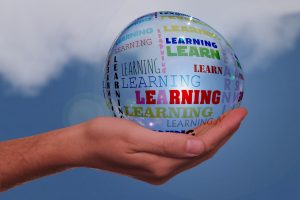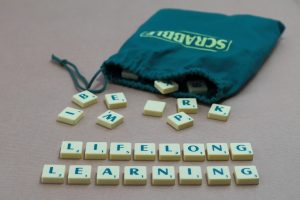Educational Assessment Revolution: Beyond Testing
The traditional education system has long relied on standardized testing as the main form of assessment for student learning. However, as the world continues to evolve and technology becomes more integrated into our daily lives, the need for a new approach to assessment in education has become increasingly apparent. This has led to a revolution in educational assessment, going beyond the traditional methods of testing and embracing more innovative and effective techniques. In this article, we will explore the educational assessment revolution and the various ways in which it is redefining how we measure and evaluate student learning.
Educational Assessment in the 21st Century
The 21st century has brought about a significant shift in the way we learn and teach. With the advent of digital technologies, learning has become more personalized, interactive, and engaging. The traditional one-size-fits-all approach to education is slowly fading away, making room for a more individualized and student-centered approach. This change in the landscape of education has also impacted the way we assess student learning.
The Limitations of Traditional Testing
For many years, standardized testing has been the go-to method for assessing student learning. It involves a set of predetermined questions that measure a student’s knowledge and understanding of a particular subject. However, this method has its limitations. Firstly, it only measures a narrow set of skills, mainly focusing on memorization and regurgitation of information. This approach does not fully capture a student’s overall learning and critical thinking abilities.
Moreover, the pressure to perform well on standardized tests has led to a highly competitive and stressful learning environment. Students are under immense pressure to meet specific benchmarks, which can be detrimental to their overall well-being and development. There is also a lack of diversity in assessment methods, as most tests are written and do not account for different learning styles.
The Educational Assessment Revolution
The educational assessment revolution aims to move beyond the limitations of traditional testing and embrace more innovative and effective ways of assessing student learning. This includes a variety of techniques such as project-based learning, alternative assessments, and student self-evaluation.
Project-based learning involves students working on real-life projects that require problem-solving, critical thinking, and collaboration. This method allows for a more holistic assessment of a student’s learning, as it incorporates multiple skills and areas of knowledge. It also provides students with a more hands-on and interactive learning experience.
Alternative assessments, also known as authentic assessments, are designed to measure a student’s performance on real-life tasks rather than relying solely on written tests. These can include presentations, debates, portfolios, and performance-based tasks. Alternative assessments provide a more accurate representation of a student’s academic progress and can be tailored to their individual strengths and abilities.
In recent years, student self-evaluation has gained popularity as a form of assessment. It involves students reflecting on their own learning, setting goals, and evaluating their progress. This approach not only empowers students to take ownership of their learning but also provides valuable insight into their understanding and growth.
The Benefits of the Educational Assessment Revolution
The use of innovative assessment techniques brings about numerous benefits for both students and educators. Firstly, it provides a more accurate and holistic view of student learning. By incorporating different methods of assessment, educators can better understand a student’s strengths, weaknesses, and progress.
Moreover, these methods of assessment promote critical thinking, problem-solving, and collaboration skills, which are essential in the 21st century. By moving away from rote memorization and focusing on real-life tasks, students are better prepared for the challenges of the future.
Additionally, the use of varied assessment techniques also promotes equity and inclusivity in education. Alternative assessments take into account different learning styles and provide a level playing field for all students, regardless of their background.
The Future of Educational Assessment
The educational assessment revolution is still in its early stages, and there is much to explore and discover in this field. Technology will continue to play a crucial role in shaping the future of assessment. With the rise of online learning, there is a growing need for virtual assessment tools that can provide real-time feedback and personalized learning experiences.
Assessment will also become more personalized, taking into account the individual needs and abilities of each student. This will involve the use of adaptive technology, which can adjust the level of difficulty and content to suit a student’s learning pace and style.
In Conclusion
As we move forward in the 21st century, the traditional education system must adapt and evolve to meet the changing needs of society. The educational assessment revolution is a step in the right direction, redefining how we measure and evaluate student learning. By embracing new and innovative techniques, we can ensure a more equitable, inclusive, and effective education for all students. The future of assessment is bright, and we must continue to embrace and support this revolutionary change in education.









